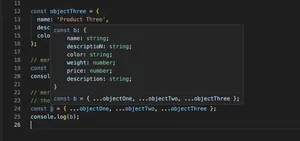Overview
TypeScript extends JavaScript by adding type annotations that enable strong type-checking at compile time. This guide explores how to use function and return type annotations to write clearer and more robust code in TypeScript.
Introduction to Type Annotations
In TypeScript, type annotations allow developers to explicitly define the type of variables, function parameters, return types, and more. By doing so, TypeScript can prevent many common errors by analyzing your code and ensuring type correctness. Let’s start with the basics of annotating function parameters and return types.
function greet(name: string): string {
return 'Hello, ' + name + '!';
}In this example, both the parameter name and the return type are annotated as strings.
Function Parameter Annotations
Function parameters can be given type annotations just like regular variables. This defines what type of value the function expects.
function add(x: number, y: number): number {
return x + y;
}This function will only accept numbers as its parameters.
Inferring Return Types
TypeScript is also capable of inferring the return type of functions based on the returned expression.
function subtract(x: number, y: number) {
return x - y; // TypeScript infers the return type as number
}However, it’s a good practice to explicitly declare the return type for clarity and to ensure your intended design isn’t violated by a refactor that inadvertently changes the implied type.
Void and Never Return Types
Some functions don’t actually return a value. In TypeScript, you can annotate these functions with the void type. If a function is intended to never return or always throws an error, the never return type should be used.
function log(message: string): void {
console.log(message);
}
function throwError(errorMsg: string): never {
throw new Error(errorMsg);
}Using Union Types in Functions
Union types allow parameters to be of different types, providing flexibility in function signatures.
function formatDate(date: Date | string): string {
if (typeof date === 'string') {
date = new Date(date);
}
return date.toISOString();
}The formatDate function can take either a Date object or a date represented as a string.
Function Overloads
TypeScript allows function overloads for cases where a function can return different types based on its input types.
function parseInput(id: number): string;
function parseInput(id: string): Date;
function parseInput(id: number | string) {
if (typeof id === 'number') {
return id.toString();
} else if (typeof id === 'string') {
return new Date(id);
}
}
This allows for targeted behavior based on the provided argument.
Generic Functions
Generics provide a way to create reusable, type-safe components by letting you define one or more type variables that the component can use.
function identity<T>(arg: T): T {
return arg;
}
The identity function is a generic that works on any type T.
Advanced Typing
As TypeScript evolves, advanced patterns like conditional types, mapped types, and template literal types are also increasingly used in function signatures.
type UserInfo = {
username: string;
age: number;
};
type UserInfoWithOptionalAge = {
[Key in keyof UserInfo as Exclude<Key, 'age'>]: UserInfo[Key]
} | {
[Key in keyof UserInfo as Include<Key, 'age'>]?: UserInfo[Key]
};
This snippet shows a mapped and conditional typing pattern that modifies the keys of an existing type.
Conclusion
Properly using function and return type annotations in TypeScript profoundly improves your codebase’s reliability. Explicit types make your intent clear, streamline the development process, and pave the way for the maintainable and scalable software architecture. By mastering TypeScript’s type system, you can prevent common bugs and confidently write high-quality code.
